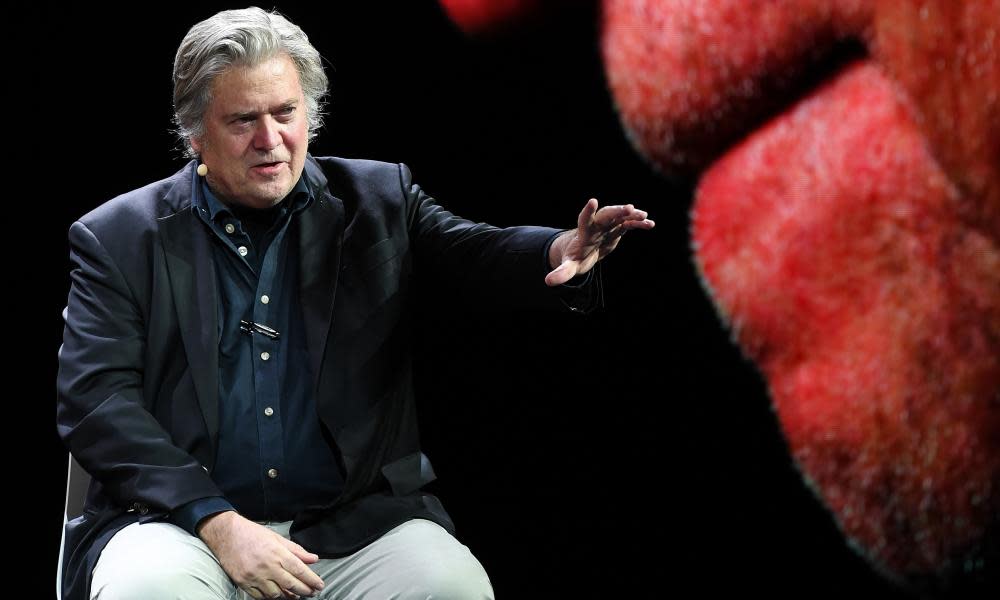A date with Steve Bannon: how can the Oxford Union have sunk so low?

In recent days, there was a rumour going around the University of Oxford that a major speaker was to be announced at the Oxford Union. When it was revealed on Wednesday morning that the mysterious figure was Steve Bannon, few were surprised. The invitation was a predictably out-of-touch move by an institution that was once renowned for its impactful and passionate debates but is now more commonly visited by professional footballers, comedians on publicity tours and extremists looking for establishment credentials.
In his reasoning for the invite, the president of the union, Stephen Horvath, presented the standard, free-speech argument that “it is only through listening to the opinions of others that we can fully understand those opinions”. The idea being that a group of university students would be able to hold fascism to account through a one-hour debate on a Friday afternoon.
But the argument – that we should listen to those on the far right because of the insight they can offer into modern populist politics – does not fly in Bannon’s case.
Since his departure as Donald Trump’s chief strategist in 2017, Bannon’s significance has seen a steep decline. His audiences at the Oxford Union and at a BBC Scotland event on Wednesday will be far higher than he has become accustomed to recently: only 38 people attended one of his events in New York earlier this year, and photos of empty rooms quietly listening to Bannon have become commonplace on social media.
In the Oxford Union event biography – which is remarkably neutral, for a man who views Tommy Robinson as the “backbone of this country” – his new political project, the Movement, is mentioned. It is described as a group trying to “promote rightwing economic nationalism in Europe ahead of the European parliamentary elections in 2019”. But don’t worry if you haven’t heard of it – it hasn’t amounted to much. Bannon, along with his European coordinator, Mischaël Modrikamen, has been rejected by many of the parties he aims to support. In a joint press conference last month held by the National Rally’s Marine Le Pen and Italy’s far-right interior minister Matteo Salvini, the former dismissed Bannon’s offer of help, saying: “Bannon is not European. He is American.” And in August, Alternative for Germany (AfD) – whose leader was also invited to the Oxford Union last month but had to cancel because of “security concerns” that had nothing to do with the mass protest organised against her – also rejected the Movement, saying: “We’re not in America.”
So Bannon is no longer significant in US politics, and so far his attempts to gain notoriety in Europe are floundering. So why has the Oxford Union invited him? The answer is saddening and obvious – it’s for the excitement. Leaders of the union are titillated by the idea of having someone like Bannon speak at their institution. His invitation, and the complete denial of its problematic nature, gives an insight into this institution that has provided the starting point for many of our political leaders’ careers. They take joy in turning up week after week decked out in white tie to play at parliamentary politics for a few hours. And their political games have a real-life impact – the Boris Johnson-Michael Gove Tory leadership fight in 2016 came straight from the halls of the Oxford Union.
The Bannon invitation is yet another example of an institution that serves no real purpose apart from churning out politicians who care more about the game than its result. Perhaps it has had its day.
•Fred Dimbleby is a freelance journalist studying history at Oxford

 Yahoo News
Yahoo News 
